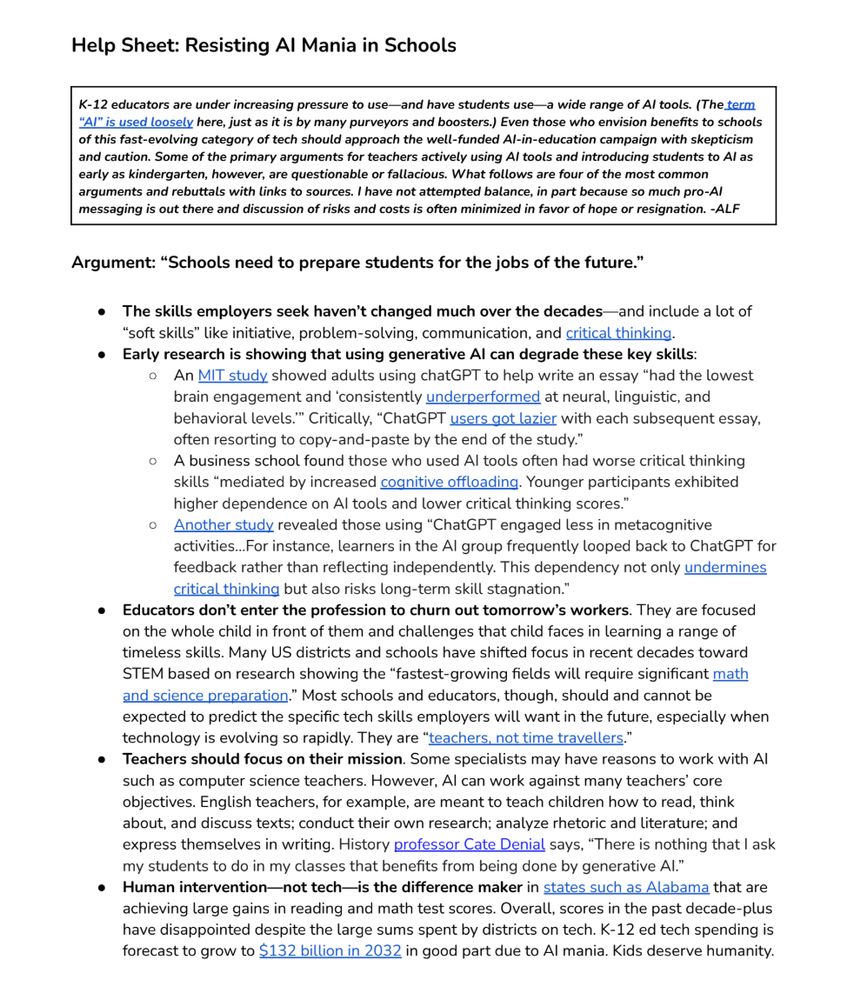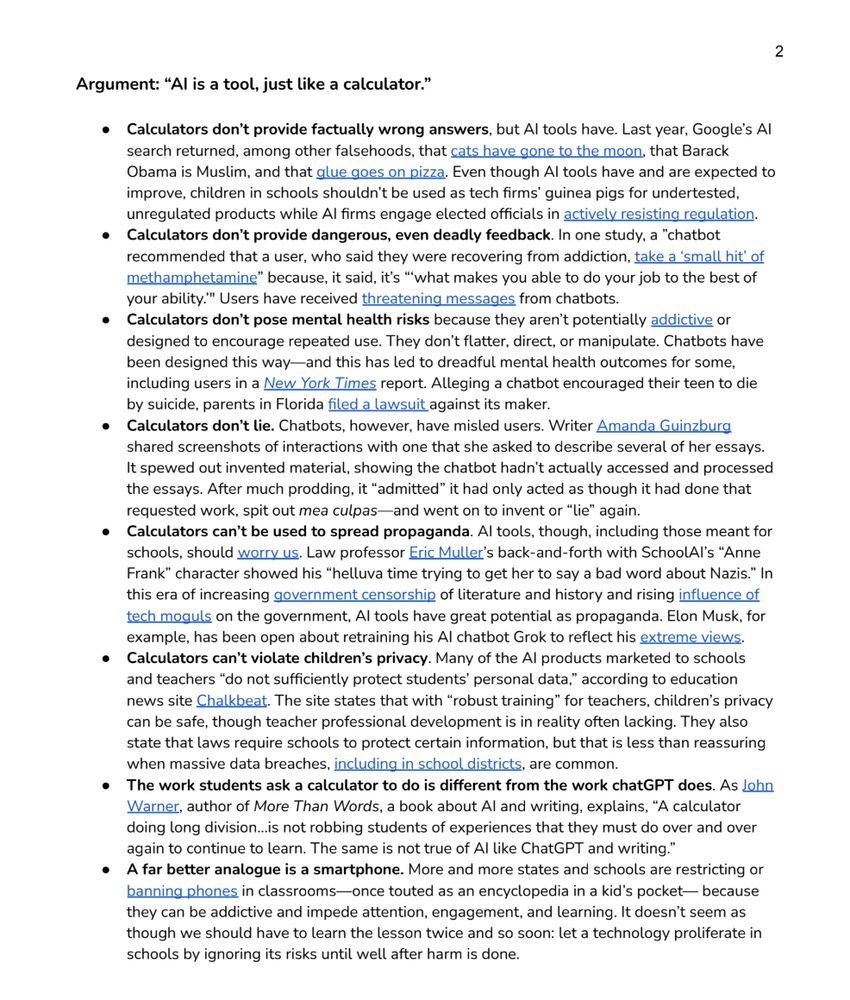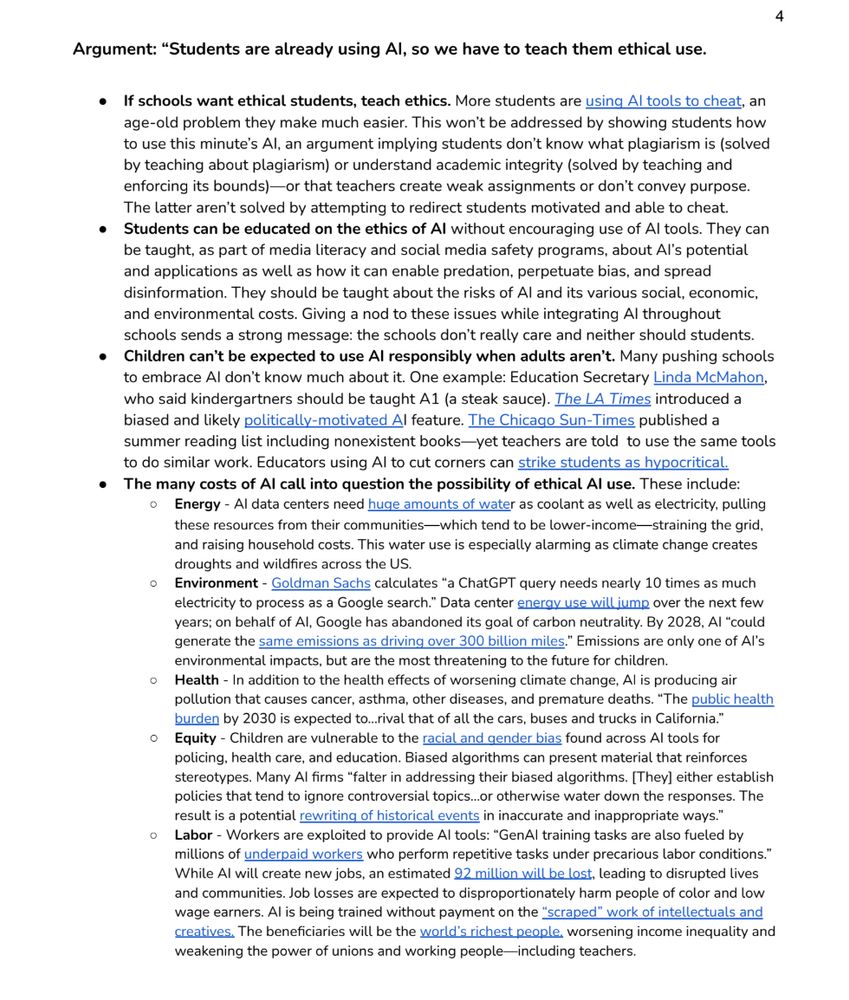Anne Lutz Fernandez
@lutzfernandez.bsky.social
9.3K followers
2.1K following
9.7K posts
Ex-banker, marketer, & English teacher: pick your ad hominem. Co-author of nonfiction books Carjacked & Schooled. Cranky in the AM.
Newsletter: https://nobody-wants-this.ghost.io/
Posts
Media
Videos
Starter Packs
Pinned
Reposted by Anne Lutz Fernandez
jamelle
@jamellebouie.net
· 1d

Exclusive | CBS News taps Adam Rubenstein — once ostracized at NY Times for liking Chick-fil-A — as new deputy editor
Sources expect Rubenstein will effectively run the Free Press now that Weiss will be busy steering the editorial direction of shows like “60 Minutes,” “Face The Nation” and …
nypost.com
Reposted by Anne Lutz Fernandez
Reposted by Anne Lutz Fernandez
Reposted by Anne Lutz Fernandez
Reposted by Anne Lutz Fernandez



![Argument: “AI won’t replace teachers, but it will save them time and improve their
effectiveness.”
● Adding edtech does not necessarily save teachers time. A recent study found that learning
management systems sold to schools over the past decade-plus as time-savers aren’t
delivering on making teaching easier. Instead, they found this tech (e.g. Google Classroom,
Canvas) is often burdensome and contributes to burnout. As one teacher put it, it “just adds
layers to tasks.”
● “Extra time” is rarely returned to teachers. AI proponents argue that if teachers use AI tools
to grade, prepare lessons, or differentiate materials, they’ll have more time to work with
students. But there are always new initiatives, duties, or committee assignments—the unpaid
work districts rely on—to suck up that time. In a culture of austerity and with a USDOE that is
cutting spending, teachers are likely to be assigned more students. When class sizes grow,
students get less attention, and positions can be cut.
● AI can’t replace what teachers do, but that doesn’t mean teachers won’t be replaced.
Schools are already doing it: Arizona approved a charter school in which students spend
mornings working with AI and the role of teacher is reduced to “guide.” Ed tech expert Neil
Selwyn argues those in “industry and policy circles...hostile to the idea of expensively trained
expert professional educators who have [tenure], pension rights and union protection...
[welcome] AI replacement as a way of undermining the status of the professional teacher.”
● Tech firms have been selling schools on untested products for years. Technophilia has led
to students being on screens for hours in school each week even when their phones are
banned. Writer Jess Grose explains, “Companies never had to prove that devices or software,
broadly speaking, helped students learn before those devices had wormed their way into
America’s public schools.” AI products appear to be no different.
● Efficiency is not effectiveness. “…](https://cdn.bsky.app/img/feed_thumbnail/plain/did:plc:jpjyorpadryoa6vnwwsnnyq5/bafkreihrxw6b7l5nd2nm5xn63goepj67tfvkd6m7gjmhaci6kxime2at6q@jpeg)















